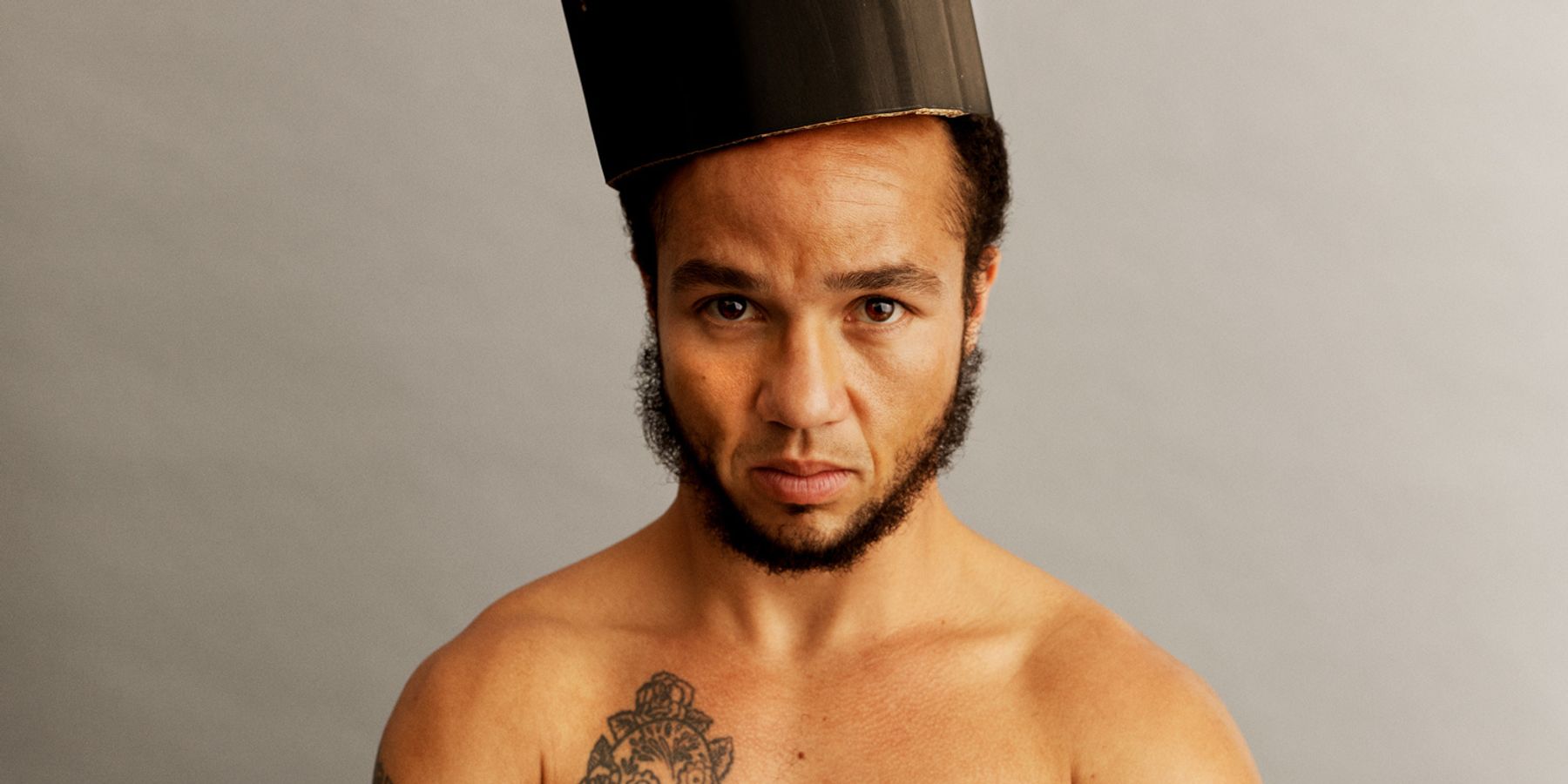
For PAPER's first-ever Sports Issue, on stands now, we explored, among many topics, how the gender revolution is upending the sports world. In an investigative piece, we uncovered just how transgender and intersex athletes are fighting to shatter perceptions (and common misconceptions) about fair play and inclusion.
Related | How the Gender Revolution Is Upending Sports
Specific concerns include the ways in which often-harmful, top-down regulations around hormone levels from sport-governing bodies such as the International Olympic Committee (IOC) and the International Association of Athletics Federations (IAAF) impact the ability of trans and intersex athletes to successfully compete in the sports of their choosing. The Olympic policy of 10 nanomoles of testosterone per liter is the current standard for trans athletes who wish to compete at the highest level, and has been upheld in various degrees by other sports leagues.
But this raises questions and concerns around gender policing, and the validity of sex testing and discrimination — the process of essentially "verifying" an athlete's sex. Some activists and researchers, including Yale anthropologist Katrina Karkazis, says that sex testing, often seen as draconian and punitive in scope and in practice, most often "negatively affects black and brown women in the global south," as seen in the years-long legal battles of female intersex track athletes Dutee Chand and Caster Semenya.
Related | Without Billie Jean King, Would We Have Adam Rippon?
Advocates such Hudson Taylor, who runs the New York-based educational outreach organization Athlete Ally, says that one of the biggest challenges is to ensure that "sport is accessible for every trans athlete, at every age level, without a requirement to undergo surgery, and without policies that essentially work to deny the identity of that individual."
Beyond that, though, trans athletes continue to spearhead the gender revolution, and the ways we think about fair play, by being great in their sports of choice, by daring to be seen, and by being the first, which paves the way for those who follow in their footsteps. Here, trailblazers Caitlyn Jenner, Patricio Manuel, Chris Mosier, Tia Thompson, and Harrison Browne sound off.
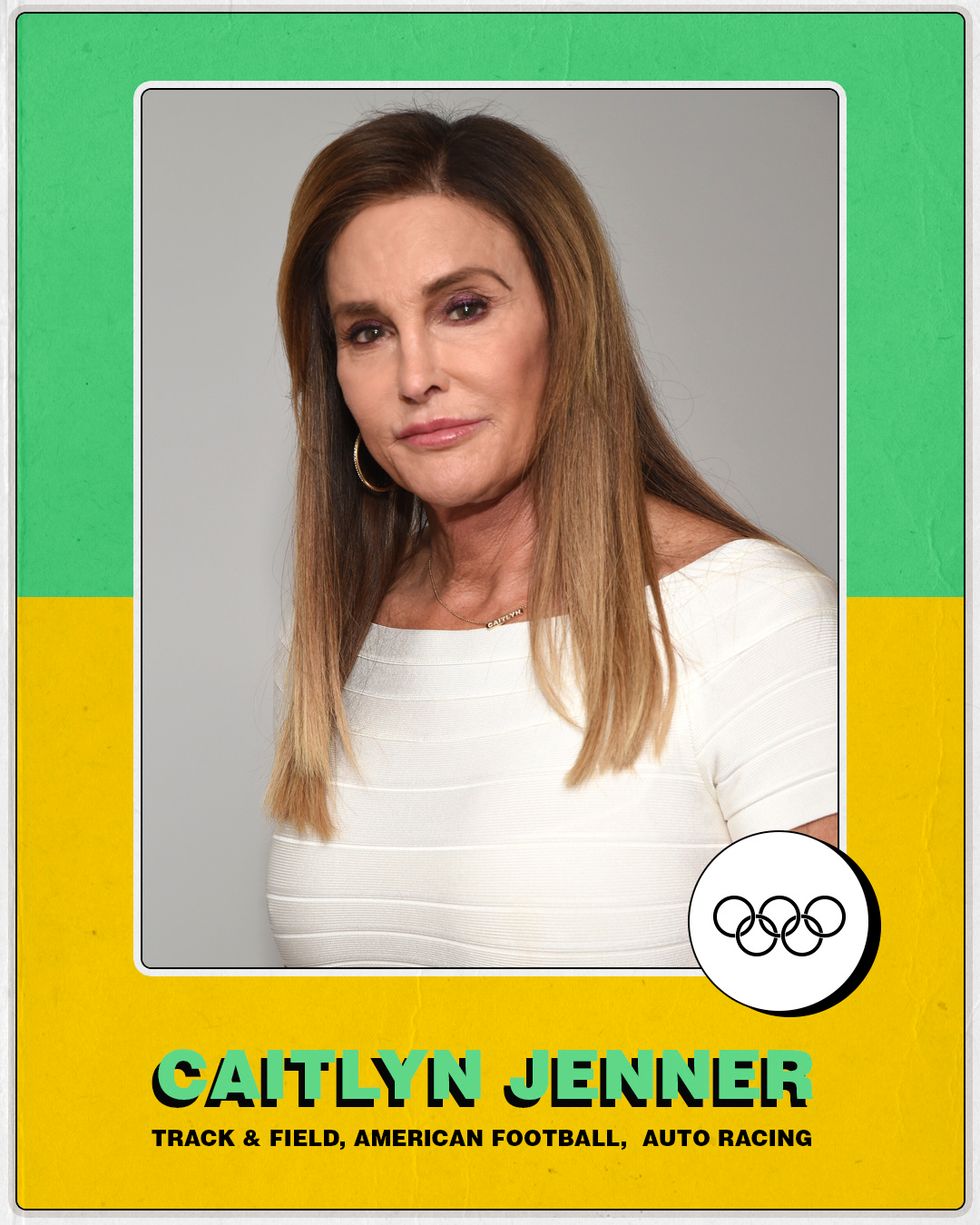
Age: 68
Hometown: Mount Kisco, New York
Sport: Gold for decathlon in 1976 Montreal Olympic Games
On being outlifted by a woman:
"When I was doing one of my final lifting workouts [before the decathlon] this girl from East Germany came in. I think she was an Olympic discus thrower, and she literally outlifted me. She did. My god, she was impressive. She was huge; she did sitting presses behind the neck with 300 pounds on her. I thought, "I couldn't do that if my life depended on it."
On hiding her trans identity and conforming to social norms in the sports world:
"It made me kind of special and it made me outwork the other competitors — train more than the other competitors, outsmart them, because I had more to prove. In looking back on it, it was part of my makeup. If I had been just average, I would've been like everyone out there, and I wouldn't have needed sports. I needed sports to prove to everyone, to prove to myself, my masculinity, or what masculinity society says I should have, never ever thinking I would take it as far as I did. That happens to everyone else, not to you."
On trans visibility in the Olympics and in sports:
"I take a lot of the lessons from the gay community during the time they were fighting for marriage equality. The gay community just didn't give up. Even if they handed over the ballot and it was turned down, the gay community went to court and kept pushing and pushing until eventually, I think society started to look at the issue differently and slowly politicians who were once against gay marriage saw that the tide was turning and then they were for it. That's how change comes. It's the same way with the trans athletes. Look at the Boston Marathon — they have an out trans athlete running in the race this year. It's the first year they've done it. We just kind of keep having to fight the good fight. I wish the government would follow suit. Trans people are here, we are vital, and we deserve as much access to opportunities as anyone else."
"Trans people are here, we are vital, and we deserve as much access to opportunities as anyone else." - Caitlyn Jenner
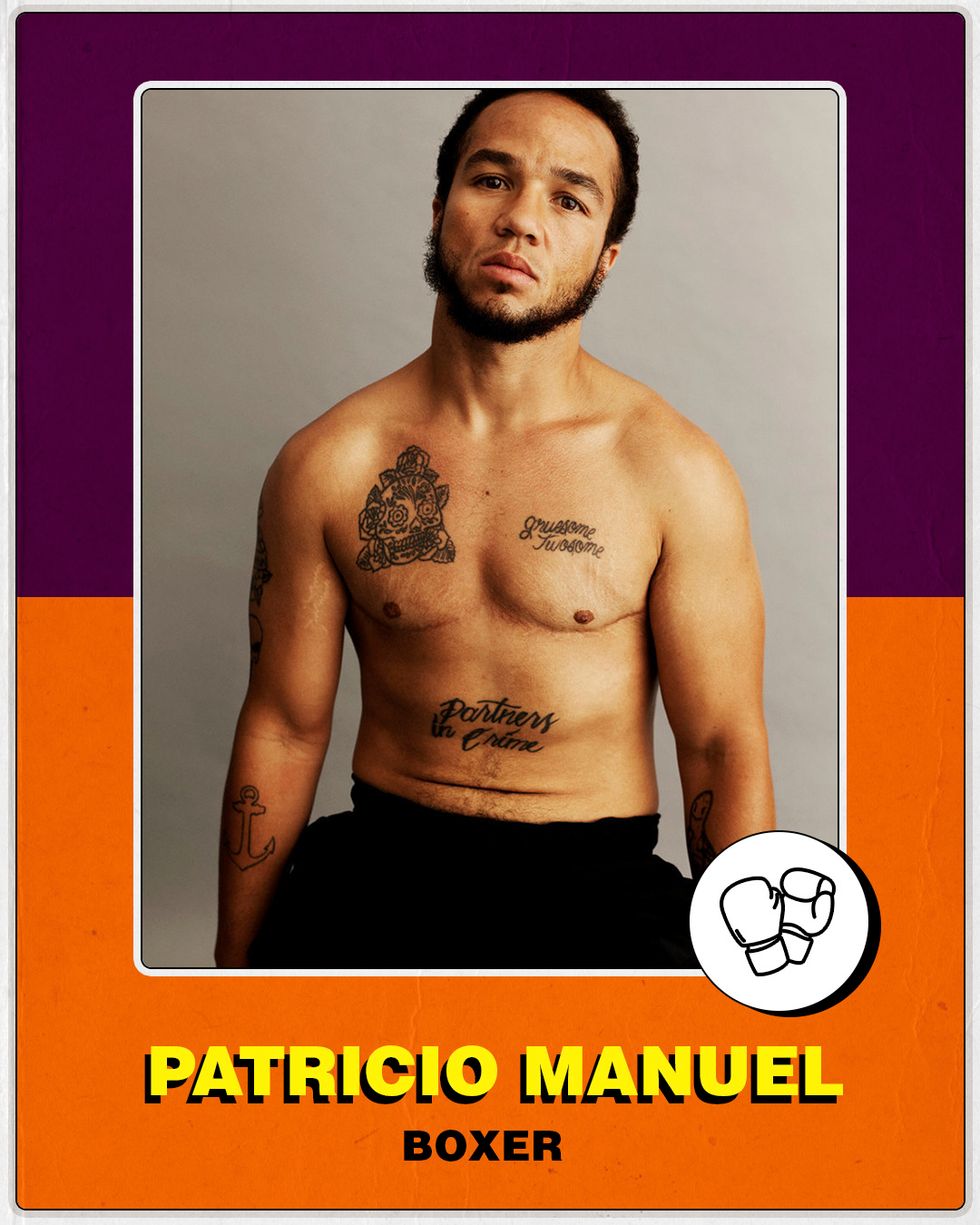
Patricio Manuel
Age: 33
Hometown: Los Angeles, CA
Sport: Boxing
On transitioning in boxing, unequal gender testing, and transphobia in sport policy:
"In 2012, I was still an elite female athlete, and USA Boxing created policy around 2016 that served me well as I navigated my hormonal transition. I know I'm lucky. I went to multiple Olympic trials, and once beat multiple Olympians. I had a pretty big cred, so when I started to transition under USA Boxing, people already knew who I was. I had a name, I had respect, and so I think that made it smoother than others may have experience. Let's acknowledge too that I'm a trans man. Most of the policies affected athletes are steeped in misogyny and transmisogyny. 'Someone who is male at birth is therefore superior to anyone female at birth in competition,' is how the sports world tends to view things. I still have to deal that sometimes, with people saying I'm going to get knocked out if I fight a guy (when I was female), but because I'm not battling transmisogyny, it really opened up the gateway for me. If I were a trans woman coming into the sport, this may have been a different issue entirely. For male athletes, they aren't being gender tested or having the same sort of regulations as female athletes. Let's call it what it is. People used to say to me, 'Oh, that's not fair. Pat's actually a man fighting these women.' I was a muscular Black athlete, but I was never gender-tested. I don't think people are looking at the full picture of this: who are we critiquing? Whose bodies are female, effeminate? Who is allowed to participate? People are saying this without any sort of reference or understanding of how hormones actually work."
On changing sport culture at the community level:
"As a person, and as a Black person, I'm very radical in my politics. I'm very comfortable with my identity as a trans man, and I also acknowledge that not everyone is going to know where I'm coming from. Most people are incredibly ignorant about trans issues, even with changes in policy. When I was growing up I didn't even know what a trans man was. I'm personally okay with my story being doled out in ways that are digestible because I think what I find as an interesting response — of course I get haters; I get people talking shit — is when cisgender straight men of color see me on HBO and have conversations that go beyond gender. Sometimes I'm on these panels, and people talk about what more schools and colleges can do and I'm like, 'There's a large percentage of people who do not go to college.' I'm more into shifting the perceptions of people of color in usually lower socioeconomic brackets, around seeing trans people as humans, and I think especially for Latino and Black folks, boxers hold a very specific place of respect, especially concerning masculinity. So I feel really privileged to be able to have these conversations that move people beyond their comfort zone. I'll tell people in gyms who have binary thinking just how untrue it is — people who believe if you're born a girl, you become a woman and that's it, or you only have one path. And folks who are in the academic realm, and that's their way, but I feel like I'm in the center of my community and able to communicate about these issues in a way that's accessible to them. That's something I'm totally comfortable with."
"I'm more into shifting the perceptions of people of color in usually lower socioeconomic brackets around seeing trans people as humans." - Patricio Manuel
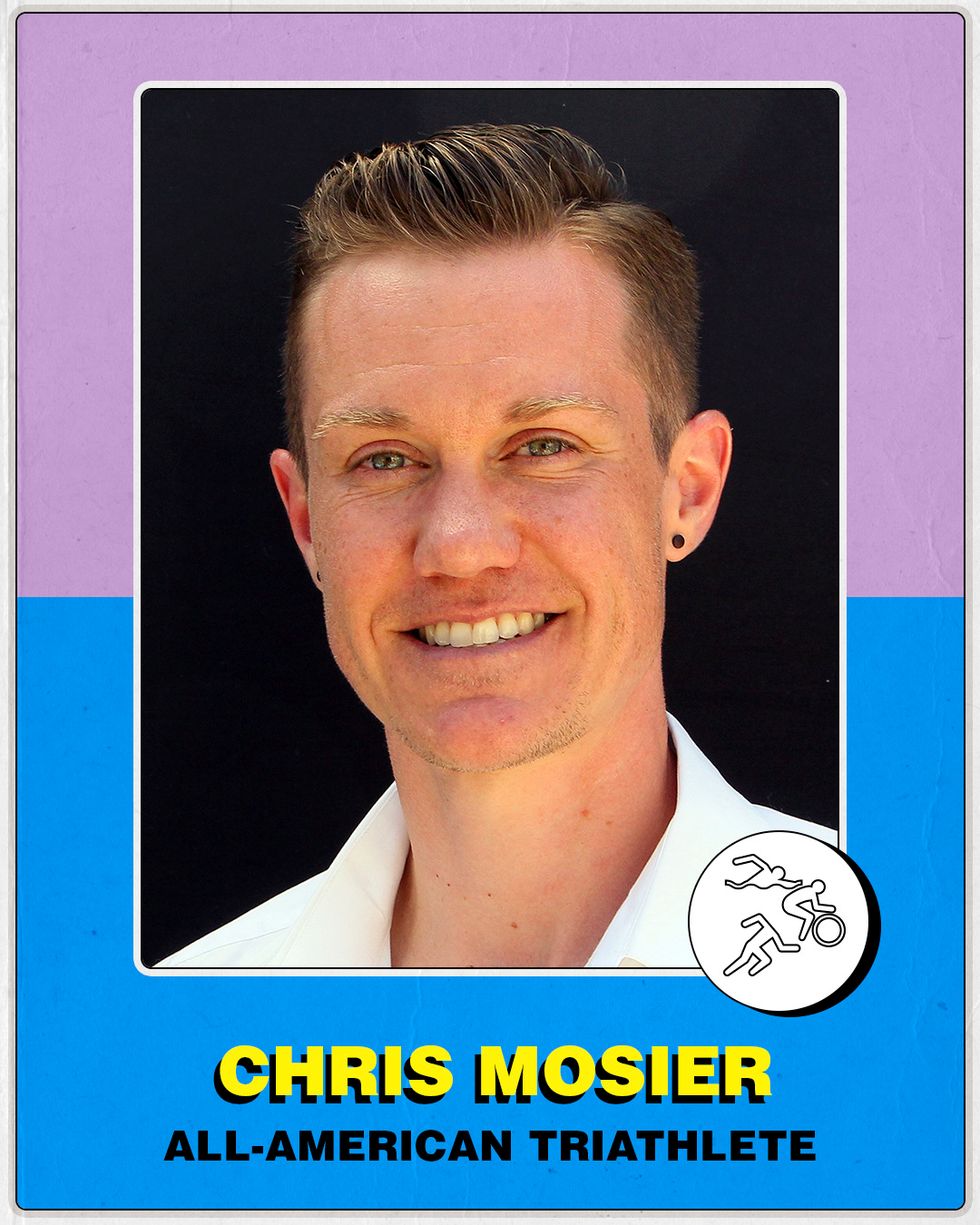
Age: 38
Hometown: Chicago, Illinois
Sport: Hall of Fame triathlete, All-American duathlete
On challenging the IOC's policy requiring gender confirmation surgery, thus catalyzing change:
"I am a duathlete and it's not recognized by the Olympics, but in order to qualify for the World Championships race— which I qualified for in 2015; the race was in 2016— you had to go by IOC rules. At the time, the rules required surgery. I thought then that not every athlete can or wants to change their body. I thought that ultimately it wasn't something that anyone should have to go through if they had the opportunity to compete. So I challenged the IOC in hopes that they would change their policy. So, was I afraid? Not really. More than anything, I just saw it as great opportunity to use that moment to say 'here's an athlete with a name and a face to say I'm being negatively affected by this policy.' Adding or removing an extra body part isn't going to make me a faster runner, or a better cyclist. It was a wonderful opportunity to not only enable my own participation— because ultimately it did when the policy was changed, and I was able to compete in the 2016 World Championships race — but just changing the policy enables the door to be open for other athletes who come after me."
On the idea that simply coming out is the secret to trans athletes' success:
"Simply coming out and being one's authentic self isn't the magic sauce to being an elite athlete or the best at your sport. When I came out, I stopped worrying about what people would think of me and what people would say about me, and I was able to put all of that energy into my racing and my training. And I did succeed, but I also had natural ability and good work ethic and all these other things that enabled me to succeed in my athletic journey. Some of the pushback I got was that not every trans man or trans woman is going to excel in their sport. It's not a matter of just coming out. For anyone to compete at a high level, there has to be that high level of athletic ability, no matter how you identify. It's always a matter of safety and you can always say that safety is the number one concern. It would do an athlete no good to be out if their safety wasn't the main priority. A lot of that depends on one's geographic location, family situation, financial access or status, etc. There are so many factors that go into whether or not one can come out and in a lot of ways it is a luxury and a privilege to be outspoken and visible. In that respect, I know I'm fortunate: I have a supportive family, an amazing loving partner, and I'm not worried about my relationships or my finances. That truly is a privilege that not everyone has."
On using one's platform to speak out about injustices in sports:
"I think we just need to call out racism, sexism, homophobia, misogyny and transmisogyny in sports. It's my responsibility to use my platform [transathlete.com, social media, media appearances] to call out injustice in sport, not just what i'm seeing not just here but all over the world. I do believe athletes have social capital, and i do believe athletes are thought of as role models. I think what we've seen as athlete activism has been incredible in the last two years. Again we see racism very strongly at play when we see someone like Adam Rippon sharing experiences about homophobia in sports and being out gay man, and somehow that's okay on some level. But if we have athletes of color taking a knee, that is thought of as something that's not okay. We have a policing system in place that determines what qualifies as acceptable activism for athletes, and it's just highlighting the racism in our society. You have to think of people before us: Jackie Robinson broke the barrier for Major League Baseball in the 40s and we're talking 80 years ago and this conversation is not resolved. We won't fix racism, homophobia, misogyny, or transphobia in sport until we fix those things in society. I do believe that sport is a vehicle for social change. By promoting respect and inclusion throughout sport governing bodies, we can start to make a ripple effect of changes in society. As an out transgender athlete, it's up to me to use my platform to help usher in that change, to talk about transphobia, homophobia, gender inequality, and racism in sport when it's happening. I think that's the first step for all of us: We can no longer see that something is amiss and choose not say something about it."
"I think we just need to call out racism, sexism, homophobia, misogyny and transmisogyny in sports." - Chris Mosier
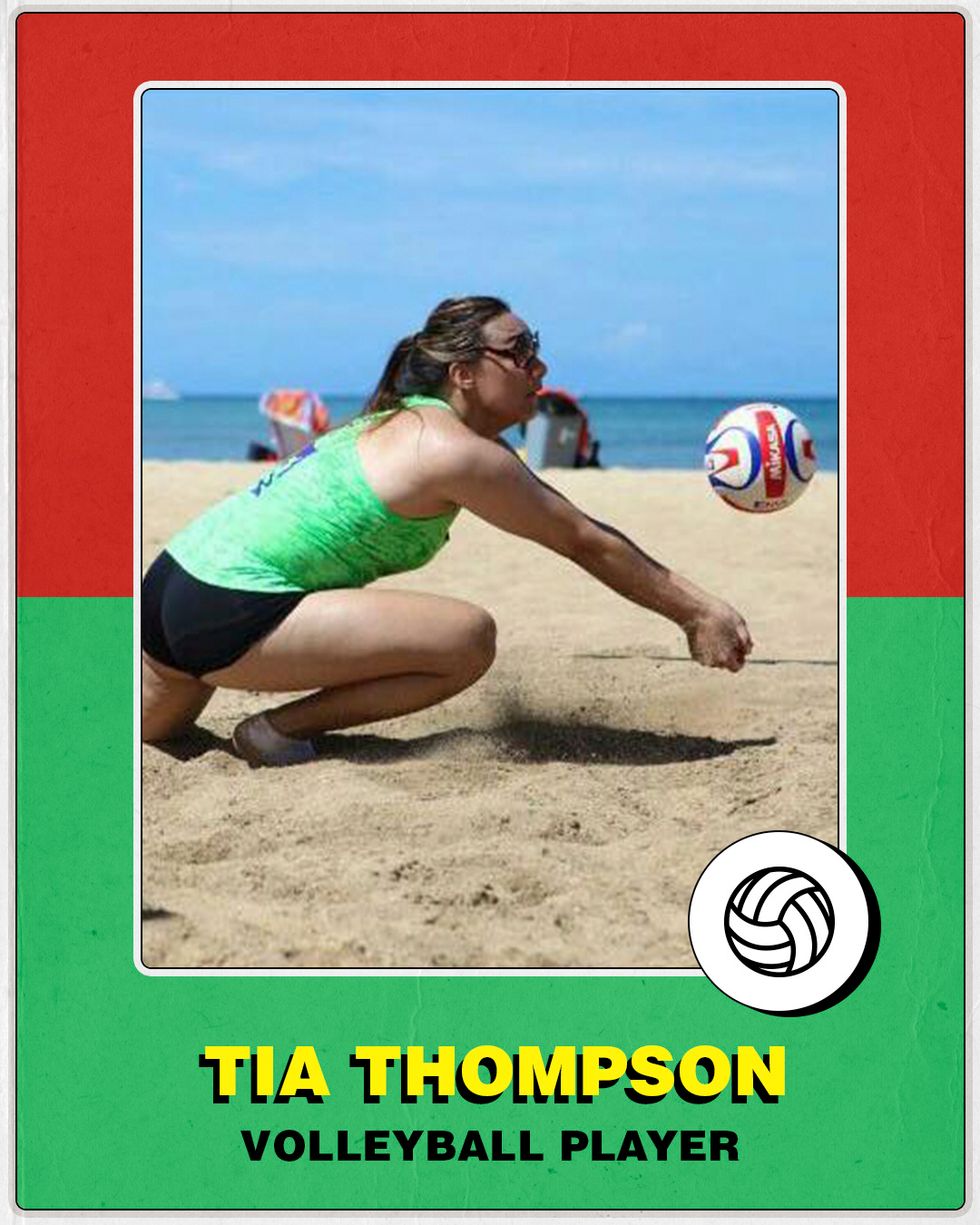
Age: 32
Hometown: Kahuku, Hawaii
Sport: Volleyball
On debunking the idea of hormone levels as a form of competitive advantage over cisgendered competitors:
"That was the biggest issue I had come up as a trans female athlete, was my presumed advantage over cisgendered women. Throughout the years of me playing in the women's volleyball division, I debunked the idea that we are coming in with an advantage. Hormone therapy changes a trans athlete's life. In the sports world, I believe that testosterone is equated with strength, so when our levels as trans female athletes are compared to those in a cisgendered woman, you can tell the difference. I started playing volleyball at age 5, so I've been in the sport my entire life. People who saw me playing first in the men's division, then now in the women's division can clearly see the difference for me. Before I started hormone therapy, I was on top of my game. I didn't play professional ball then, but I was very good. I started transitioning at age 18; I started hormone therapy at 21, so it's been over 10 years that I've been on consistent hormone therapy. I lost muscle mass, I can't jump as high as I used to, and of course there's a difference in physical appearance. The biggest difference in terms of the sport is how I played before HRT and how I play now. But that was one of the main issues was me coming in and dominating the entire sport, which is what people are saying is not true. We don't have an advantage over cisgendered women that can be 'proven,' and I'd say that some of that has to do with the therapeutical physical changes we are going through, and it affects you mentally, too."
On focusing more on sports than concerns about her gender:
"The athleticism does get lost when the focus is constantly on gender of the athlete. That's why I'm trying to push forward, and that's why I try to educate people on the process I have to go through, so they won't target gender as the focal point of an athlete; they would instead normalize a trans athlete's ability. At this point in time, it seems about the science of gender and one's testosterone levels, so my goal is trying to normalize us within the sports world. I think we have a few years to go, but I think me shooting for the Olympics can help open people's eyes. It comes down to education. Once people are given the right knowledge and they actually see what's going on, and they see the athlete in their zone, the focus will be taken off of what gender the athlete is and more focus will be given to the sport itself."
On preparing for the 2020 Tokyo Olympics, and the importance of visibility:
"I work full time, but my trainer in Hawaii has me do three-play (three players instead of six) and when I have the chance to do tournaments, I fly out and compete. Other than that, it's keeping my mind and body in shape. I told myself that I am going to live my truth. If my story and my progression can help other trans athletes, female or male, I'd say come out; it's 2018. I know it's hard for people in other countries, harder than it is here, but if they keep pushing themselves and going for their goals, with increased visibility, I think change is going to come. Persistence, perseverance and focus are important qualities for any athlete to have. Just like you have to have that to be successful in sports, the same is true for this issue: One day the change we're all looking for will probably be accomplished. One day for me, I hope that's making change while competing in the Olympics."
"The athleticism does get lost when the focus is constantly on gender of the athlete." - Tia Thompson
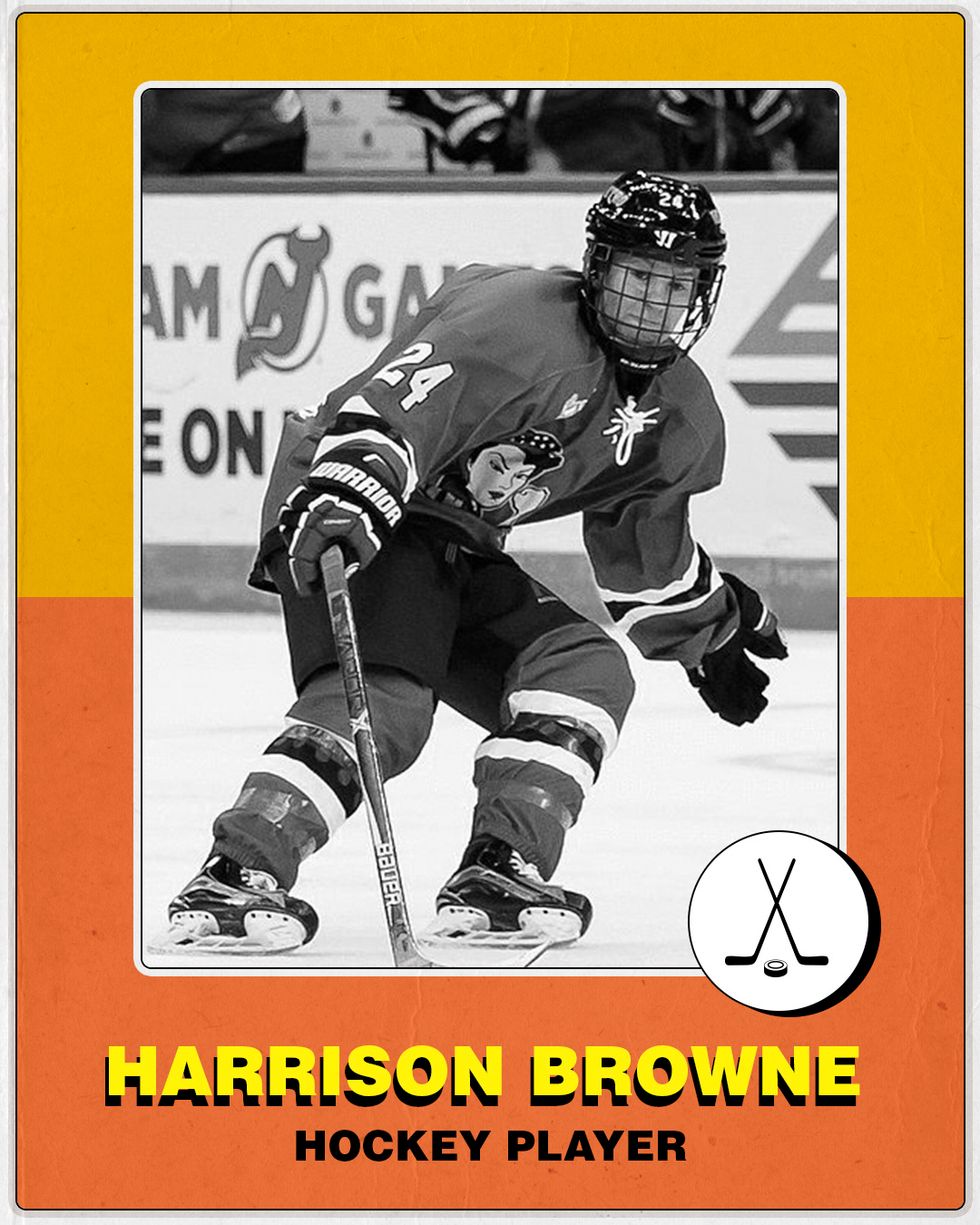
Age: 24
Hometown: Ontario, Canada
Sport: Hockey
On being welcomed as the first trans man in the women's hockey league, and being embraced by the men's hockey league:
"I did what I could while I was playing. I was one of the reasons why hockey adopted one of its first trans policies, to help accommodate me, and have something in writing that they wanted me to feel included. So that was a big step to have trans men and trans women in a very traditional sport league. That was my role as a player, and my role otherwise is creating that awareness in hockey. I'd love to be influential for all sports, but in hockey right now I'm seeing a shift. I've had people who have come up to me, owners of minor hockey leagues saying that they need to adopt trans policy. So I think just by being myself and being there, combined with speaking engagements and public appearances with the National Hockey League, it helps spread more awareness for trans players in hockey. Additionally, as an advocate I'm sometimes asked to speak on behalf of big companies, and that further legitimizes the issue. It all opens people's eyes to the fact that there are more Harrison Browne's out there and we need to make sure we do everything in our power to accommodate them."
On trans policy change in the Olympics not being "good enough":
"I hate 'good enough' for sport and for life in general. I think for LGBTQ issues and trans issues, yes they're progressing, there's more representation in the media, and people notice that we're out here, but why is it taking so long for everyone to be accommodated? Trans people are not new. It's not a new thing, it's just new in the way that it's being talked about more. Yeah, it's great with the Olympics that there's a policy made, but it needs to be more proactive and not reactive, and that's something sport leagues in general need to realize. I think it's great that things are progressing, and that people are willing to have these necessary tough conversations, but there needs to be more. I was strong enough in hockey to come out and be the first. But I don't want anybody to have to be in my shoes. I want things to be in place before somebody has to put themselves in that situation."
On choosing to wait to receive hormone treatment until after retirement, for love of hockey (and to avoid violating the NHL's doping regulations), and the internal conflict therein:
"The conflict I had happened more after college. When I was in college, I was fortunate enough to get a scholarship and go to school for free, so I thought there's no way I'll give that up just to transition. So I told myself I'm gonna put my head down, I'm gonna finish my four years, get a degree and a great education, and then I'll be able to transition. I came out in college, but I lived my life privately as a man. When I started playing professionally, and the media attention increased and I started to see my name on rosters and make the news, that was the conflict. I was thinking to myself, I don't know how much longer I can do this. I don't know how much longer I can go by female pronouns. I don't know how much longer I can live my life in this body. Every year I decided to keep playing post grad, I had a huge decision on whether or not to live in the body that aligned with who I was inside, or to just play the sport that I love. It was definitely difficult, but I started to take a step back from thinking woe is me. I realized then that I had to make this sacrifice to play the sport that I love. That helped me see the entire situation as a win-win: I can either keep playing the sport that I love, or I would start a new journey which would be equally as exciting. What kept me in the sport was realizing that I'm young, able-bodied, and I have my whole life to transition. I can wait. I'm lucky enough to be able to wait. That isn't lost on me. I realize that I've done all I could with my sport now that I'm retiring, so now I feel at peace."
"I was strong enough in hockey to come out and be the first. But I don't want anybody to have to be in my shoes." - Harrison Browne
Graphics by Fred Sands (Pat Manuel Photography via Clay Stephen Gardner, Additional Photos via Getty/Supplied)
From Your Site Articles
- Indya Moore, Angelica Ross Petition to End Intersex Surgeries - PAPER ›
- Caitlyn Jenner Confirms Californian Governor Bid - PAPER ›
- Pixar Is Casting for Its First Trans Character - PAPER ›
- Caitlyn Jenner Says Letting Trans Girls in Women's Sports Is "Unfair" - PAPER ›
- Caitlyn Jenner Wants to Reinstate California's Death Penalty - PAPER ›
- Happy Pride! Meet TikTok's 2021 LGBTQ Trailblazers - PAPER ›
- Laurel Hubbard Makes History as First Trans Olympic Athlete - PAPER ›
- Laurel Hubbard Makes History as First Trans Olympic Athlete - PAPER ›
- Laurel Hubbard Makes History as First Trans Olympic Athlete - PAPER ›
- Laurel Hubbard Makes History as First Trans Olympic Athlete - PAPER ›
- Celebrities Fashion at the 2025 World Series - PAPER Magazine ›